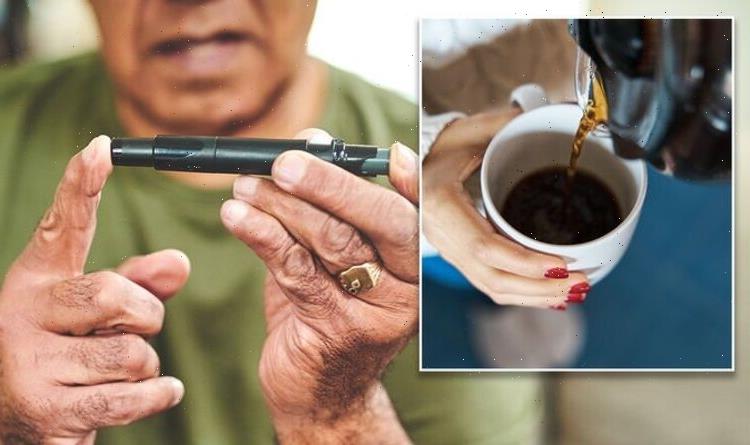This Morning: Dr Sara issues advice to non coffee drinkers
We use your sign-up to provide content in ways you’ve consented to and to improve our understanding of you. This may include adverts from us and 3rd parties based on our understanding. You can unsubscribe at any time. More info
Several factors can increase or decrease a person’s likelihood of developing the condition.
Including how much coffee they consume.
While the initial assumption may be that coffee could increase a person’s risk of type two diabetes, in fact the opposite is the case.
According to a study from Harvard University people who cut their coffee consumption by one cup a day over a four-year period were 17 percent more likely to get diabetes.

Furthermore, those who added an extra cup reduced their risk of developing diabetes by 11 percent.
Although the researchers don’t know quite why coffee has this effect on the body, one theory that exists is that the act appears to promote steadier blood sugar levels.
While this means coffee has a beneficial impact on the body, not all coffees are equal.
An espresso or cafetiere is likely to have much higher health benefits than a coffee with sugar, whipped cream, and syrup.
Nevertheless, it is yet another health benefit of coffee to have been identified.
Previous studies have found the coffee can help reduce the risk of heart disease.
Meanwhile, there are other factors that can affect a person’s likelihood of developing diabetes.
According to Prevention using mouthwash can have a negative impact.

A study from the University of Alabama showed those who used the substance twice a day were over 50 percent more likely to be diagnosed with type two diabetes than those who didn’t use it.
Although this may sound unnerving, more research is needed to fully understand this link.
Diabetes UK says a number of factors can influence a persons’ risk such as:
• Age
• Ethnicity
• Race
• High blood pressure
• Weight
• Smoking
• Gestational diabetes
• Polycystic ovary syndrome
• Mental health conditions.

As each year passes scientists are developing a better understanding of diabetes and how to treat it.
In recent years new treatments have been trialled and developed, some with highly positive results.
This includes the use of ultrasound and the development of an artificial pancreas.
If you’re concerned that you have the symptoms of type two diabetes talk to your GP.
Source: Read Full Article
